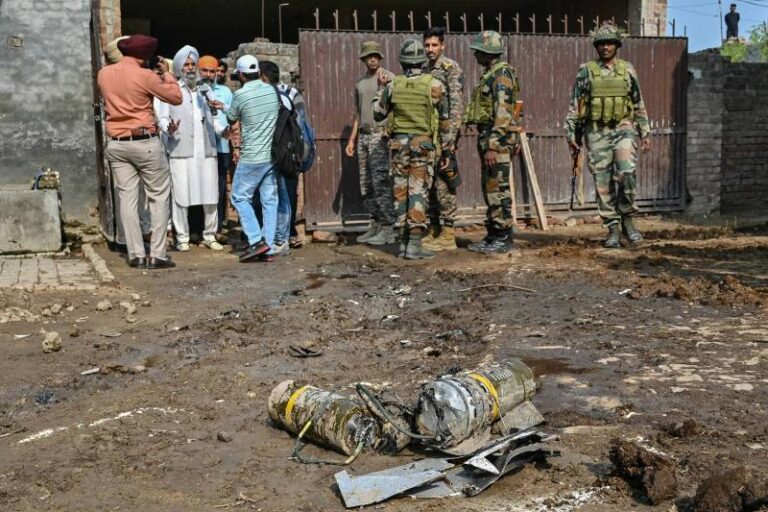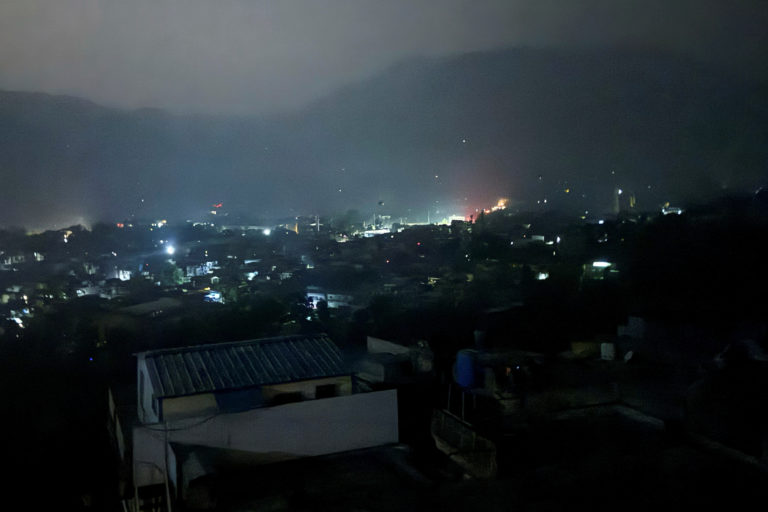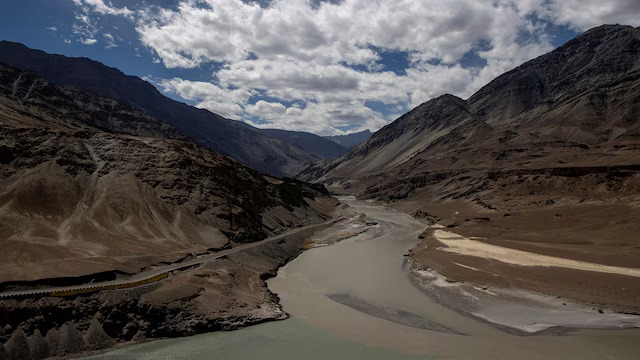
Rifaat Hussain
By winning a clear majority in the Indian general elections held last month, the NDA coalition led by Bhartia Janta Party (BJP) under Prime Minister Narendra Modi, has consolidated its hold on power for next five years.
Successfully deploying anti-Pakistan, anti-Minorities rhetoric and running a very smart electoral campaign on national security issues, BJP decimated its rival Congress Party by winning over three hundred seats in the Indian parliament. Many analysts have argued that BJP’s spectacular second electoral win marks a sea change in domestic politics of India as it represents the demise of the secular “Nehruvian” India and its displacement by right wing Hindutva forces led by BJP. How would the outcome of this electoral verdict in favour of BJP impact upon New Delhi’s relations with Islamabad?
There are two competing strands of thought on this key question. One school of thought believes that India’s current policy of unremitting hostility towards Pakistan is likely to change as anti-Pakistan posture has run its course after the Indian elections. New Delhi might show some signs of positive engagement with Islamabad after settling of the electoral dust in New Delhi. The second school of thought believes that because New Delhi’s hardline posture toward Islamabad has paid electoral dividends with minimal external costs, India under Modi’s second term would tend to stay the course. At the heart of this debate is the reading of Modi’s personality. Is he an incorrigible, hard-core Hindu extremist who takes pride in his calling as leader of the “Saffron brigade” or is he a realist-pragmatic nationalist leader who uses Hindutva slogans to gain domestic legitimacy and popularity?
The weight of historical evidence would tend to favour the latter view. From his days as Chief Minister of Gujrat when he abetted Gujrat communal riots in which over 1000 Muslims were massacred to his first term as PM of India, Modi has pursued the Hindutva agenda with an unsurpassed single-mindedness. His brutal suppression of the fundamental rights of the Kashmiris and use of massive force to muzzle their voices for freedom testifies to his savage nature. Given the autocratic and violent structure of his personality, there is little hope that he would consider mending his ways and show flexibility towards Pakistan during his second term.
Be that as it may, the India question in Islamabad’s strategic calculus must be tackled head on, as the current state of hostility between the two countries marked by the recent Pulwama crisis, cannot be allowed to go on for another five years. The fragile deterrence between nuclear- armed neighbours can easily break down due to miscalculation, misperception and inability of either side to control the escalatory dynamics.
The rise of extremist forces in India, coupled with the activities of violent non-state actors has added a new dimension of instability to India-Pakistan bilateral relations. It is imperative that Pakistan must evolve and pursue a coherent, long term “India policy” on which there is a national consensus. The fundamental aim of this policy should be to deny India strategic space for causing harm to Pakistan and concurrently exploit opportunities that may exist for mutual benefit.
Islamabad essentially has three options, namely, disengagement, selective engagement and constrainment. Disengagement would entail that Pakistan minimizes its ties with its hostile neighbour and would have no interest in getting its relations out of the deep freeze unless New Delhi changes its strategic behaviour towards Islamabad. This policy is neither desirable nor viable as it would only accelerate Islamabad’s political isolation in the global arena and would add weight to New Delhi’s propaganda against Islamabad as an “irresponsible” and “abnormal” state.
The second option of selective engagement is a step down from a policy of comprehensive engagement, which would seem an ideal option but given the current realities of Indian hostility would seem impractical.
Selective engagement calls for initiating dialogue with India in those areas, which are deemed vital for both sides. These would include Kashmir, cross-border terrorism, water and bilateral trade. Selective engagement offers a mid-way between total disengagement and comprehensive engagement. It should be a preferred option for Pakistan and should be based on the following principle of three R’s: reciprocity from India that may be simultaneous or sequential; result oriented dialogue that must focus on resolution of bilateral disputes; reduction of trust deficit between the two countries through collaborative efforts. Resumption of an irreversible process of dialogue would be the end result of the above three principles of engagement. Selective engagement will not only help resolve issues that are critical to Pakistan’s long term sustainability as a nation but would address the needs of both countries on a relatively equal footing. Furthermore, by initiating the resolution of conflict by taking proactive measures, Pakistan would be able to increase its support in South Asia and beyond, giving it more political clout in the long run. Some of the areas in which selective engagement may be possible are listed below:
Trade
Pakistan should focus more on reducing and controlling the informal trade. This can be done through enhancing the capacity of Custom Department and Border forces. Furthermore, by relaxing the process to acquire visa, informal trade can be controlled. Pakistan should make a comprehensive trade policy, which benefits its domestic market and local industries.
The policy should focus on developing our infant industries so that they can compete with well-established industries of India.
If India does not want to import Pakistani goods, then Pakistan should make arrangements to benefit from Indian development in the service sector, i.e. make use of the technical know-how of Indian experts particularly in the Information Technology (IT) sector.
Moreover, there is a need to expand legal trade between the two countries while discouraging informal trade. For this purpose, there is a need for setting up facilities near India-Pakistan border and relaxed banking policies so that trade normalization can be achieved.
Water
Pakistan should use water diplomacy as a strategy as part of its selective engagement with India in the following areas:
Soliciting International Support
Pakistan should actively highlight the violation of Indus Water Treaty by India in international forums by drawing attention towards the humanitarian aspects of the flow of water from India into Pakistan and highlight how these violations are producing an adverse impact on Pakistani water resources and the environment as a lower riparian. For this purpose, Pakistan should seriously lobby with International governments to drive the message home that there is a need to use water as a mechanism for stronger regional cooperation. This would call for participation in various regional and sub-regional level dialogues on forums like SAARC, centers of reconciliation and dialogue between India and Pakistan, climate conventions and multilateral forums where the issue of water in Pakistan can be highlighted prominently.
The Indus Water Commission has been inactive in conducting regular meeting to discuss the issues of concern. With the resumption of bilateral dialogue, regular meetings and talks between the Indus Water Commissioners should be carried out to ensure regular data sharing and minimizing water related conflict between the two countries. Moreover, there is a need to resume secretary level dialogue between India and Pakistan in the area of water diplomacy.
In order to track availability of data and information relating to water flows, Pakistan needs to establish a Sophisticated Forecasting System. This will allow for real time data sharing regarding the flow of water in the rivers and tributaries of the Indus Water System. Real time data of minor, major tributaries and all head-works, will be shared through the use of a website and moreover, the website must also include three-dimensional models of dams.
Kashmir
Pakistan should continue to call for the resolution of the Kashmir dispute as the core issue between the two countries. It should also discourage calls for armed militancy in occupied Kashmir by violent non-state actors while continue lending solid moral and diplomatic support to the just struggle of Kashmiris for self-determination, recognizing that Kashmiris are a vital stakeholder in any peace process aimed at easing tensions between India and Pakistan.
Culture & Communication
Establishment of a Media Monitoring and Action Cell (MMAC) – A dedicated media monitoring and action cell should be set up whose responsibilities would include:
- Monitoring the Indian coverage on Pakistan on all information outlets like television, radio, print and social networks.
- Formulate a response to counter Indian arguments by disseminating real-time factual information in the form of announcements, articles, documentaries etc.
Pakistan should actively seek the renewal of the 1988 Cultural Agreement that was signed between Islamabad and New Delhi in 1988 and was allowed to lapse in 1998. This Agreement had called for cooperation in the fields of arts, culture, archeology, education, mass media and sports.
Constrainment
This option is a variation on the theme of selective engagement and refers to Islamabad adopting a defensive policy towards India. Constrainment would entail discontinuation of proactive policy measures on the part of Pakistan towards India. The salient feature of Constrainment as a policy option is constant monitoring of ongoing events and devising responses accordingly. This policy requires that Islamabad should not enter into long-term agreements with India while continue making efforts to increase its diplomatic clout in the international arena with regard to India. The following steps can be taken by Islamabad to increase its international influence:
- Development of bilateral ties with other regional states such as Iran over energy needs and further strengthening of the relationship with China to tackle Indian expansionism.
- Pakistan should actively cultivate ties with Central Asian states for the import of gas and electricity. Construction of TAPI and IPI pipelines should be accorded high priority. Pakistan should push for structural industrial growth divorced from reliance on international loans.
Constrainment must be employed with caution as it is based on improving Pakistan’s public image by sidelining India in the process. Its pursuit may trigger a hostile reaction from India that may act as a deterrent for cooperation on selective engagement fronts. Because of these risks, Pakistan should modulate its approach towards India between Selective Engagement and Constrainment.
Prof. Dr. Rifaat Hussain is Head of the Department Government, Policy and Public Administration, School of Social Sciences and Humanities, National University of Sciences and Technology (NUST), Islamabad.







